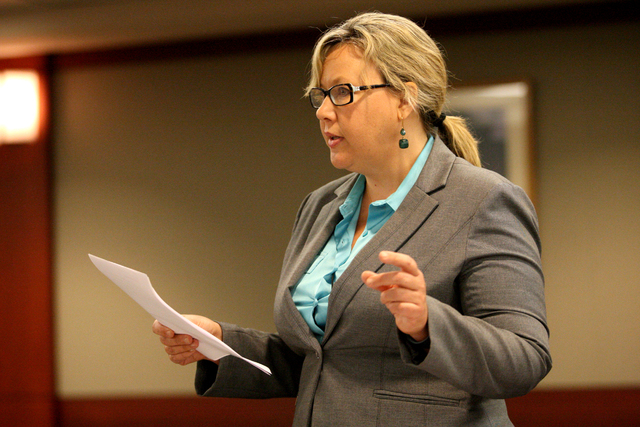California courts supply good news on public records
There’s good news out of California for people who like to trust, but verify, that their government is doing the right thing. And maybe someday, that good news will extend to Nevada.
The California Supreme Court ruled last week that just because public officers and employees use private devices and email accounts to conduct official business, they’re not beyond the reach of that state’s public records law.
That ruling is especially important in light of recent years, in which officials of the George W. Bush administration were caught using a private, Republican National Committee-sponsored email account to conduct government business. Hillary Clinton lost the 2016 presidential race, in part, due to her intentional use of a private email server for personal and State Department business. And we also learned last week that Vice President Mike Pence used an America Online account to conduct official business when he was governor of Indiana.
In the California case, a man requested records related to San Jose’s redevelopment program, but was rebuffed as to relevant information stored in the private email accounts of some officials.
California’s high court made it clear the purpose of its public records laws — to ensure government accountability and transparency — applied.
“The statute’s clear purpose is to prevent an agency from evading its disclosure duty by transferring custody of a record to a private holder and then arguing the record falls outside the [California Public Records Act] because it is no longer in the agency’s possession,” a unanimous court wrote. “The city’s interpretation would allow the evasion of the [law] simply by use of a personal account. … If communications sent through personal accounts were categorically excluded from [the law], government officials would hide their most sensitive, and potentially damning, discussions in such accounts.”
In reversing the Sixth District Court of Appeal, the California court also struck a powerful blow for accountability: “It is no answer to say, as did the Court of Appeal, that we must presume public officials conduct official business in the public’s best interest,” the ruling reads. “The [state] Constitution neither creates nor requires such an optimistic presumption. Indeed, the rationale behind the [Public Records] Act is that it is for the public to make that determination, based on information to which it is entitled under the law. Open access to government records is essential to verify that government officials are acting responsibly and held accountable to the public they serve.” (Emphasis in original)
In Nevada, courts have yet to grapple with this issue directly. Newspapers have sued to obtain emails and texts from former Gov. Jim Gibbons. The Nevada Policy Research Institute has sued to get a list of Clark County School District teacher emails. But those cases involved official government email accounts. More recently, solar power company Sunrun sought to obtain emails and texts exchanged between Gov. Brian Sandoval and his staff and lobbyists for NV Energy, but the company voluntarily dismissed that litigation.
But attorney Maggie McLetchie, who represents the Review-Journal in public-records cases, said the California Public Records Act is very similar to Nevada’s law, and that the reasoning of the California court could easily be adopted in this state, for the same reasons.
Moreover, McLetchie said, public agencies could avoid the entire mess by instructing employees to conduct all business on government-issued phones and email accounts, obviating the need to search private email for public records.
Come to think of it, that advice would probably have served Hillary Clinton in good stead, too.
Steve Sebelius is a Review-Journal political columnist. Follow him on Twitter (@SteveSebelius) or reach him at 702-387-5276 or SSebelius@reviewjournal.com.







